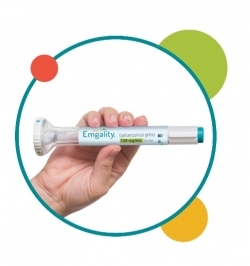Venclexta, Evenity, Fasenra, and Emgality work towards securing reimbursement
The Ministry of Food and Drug Safety approved 23 new drugs in 2019, many of which are anticancer and rare disease therapies. Four therapies gained reimbursement while the rest are waiting for insurance approval from the drug regulator. The Medical Observer took a look at the therapies approved last year and examined which are most likely to gain coverage. The Medical Observer also looked at the therapies most likely to win the Ministry of Food and Drug Safety’s (MFDS) approval following the go-ahead from the U.S. Food and Drug Administration.
Venclexta: chronic lymphocytic leukemia therapy

Abbvie's B-cell lymphoma-2 (Bcl-2) leukemia therapy Venclexta (ingredient Venetoclax) got the green light from the drug regulator in May as a monotherapy to treat recurrent or refractory chronic lymphocytic leukemia.
After getting approval, Abbvie filed for reimbursement with the Health Insurance and Review Assessment Service (HIRA). HIRA's Drug Benefit Evaluation Committee, in turn, decided that 10mg, 50mg, and 100mg of Venclexta were eligible for coverage.
Venclexta suppresses excessive expression of the BCL-2 protein, which inhibits apoptosis in chronic lymphocytic leukemia patients whose blood lymphocytes increase significantly.
Abbive recently released long-term data that provides additional evidence for the clinical benefit of treating patients with recurrent/refractory chronic lymphocytic leukemia (R/R CLL) with a Venclexta/Rituximab combo for a fixed duration.
Updated data from the four-year phase 3 MURANO clinical trial showed R/R CLL patients who had taken Venclexta combination therapy without chemotherapy for a two-year fixed duration were able to maintain progression-free survival rate (PFS) and overall survival (OS).
Patients in the Venclexta combo arm also reached a higher rate of microresidual disease (MRD)-negativity and complete remission compared to the Bendamustine/Rituximab standard therapy arm.
Hospital checkups for possible reductions in white blood cell count is necessary with Venclexta. However, hospital visits are limited to about once a month after the dose is increased to a certain level.
Venclexta is a third-line therapeutic agent that can be used in patients with advanced chronic lymphocytic leukemia who have poor general systemic conditions due to failure with first-line and second-line treatment.
Chronic lymphocytic leukemia is a rare hematologic cancer. Around 100 to 200 new patients are diagnosed in Korea each year. Only a few patients need third-line treatment, considering most are treated with the first and second-line therapies. Considering the nature of the drug, experts say that Venclexta coverage would not significantly impact the finances of the country's health insurance.
Evenity: bone forming agent

Amgen's Evenity pre-filled syringe (ingredient romosozumab), a bone-forming agent with the dual effect of promoting bone formation and inhibiting bone resorption, gained the MFDS approval in May. Amgen released the therapy in Korea in December.
Evenity is a humanized monoclonal antibody therapeutics targeting sclerostin, a protein that inhibits bone formation. It is an osteoclast that inhibits the protein, activates the activity of osteoblasts involved in bone formation, and inhibits osteoclast activity that promotes bone resorption.
Evenity slashed the risk of new spinal fractures by 73 percent compared to the placebo group at 12 months in the FRAME trial. FRAME, a phase 3 placebo-controlled trial, included 7180 postmenopausal women with a high risk of fracture, and a total hip or femoral neck BMD T-score ranging from -2.5 to -3.5.
The ARCH study, a phase 3 trial that pitted the therapy against alendronate, also showed a significant reduction in the risk of fractures with Evenity. The trial assigned 4,093 women with postmenopausal osteoporosis into an Evenity or alendronate arm. Results showed the Evenity arm had a 37 percent lower risk of new vertebral fractures.
"Preventing fractures with stronger treatment in patients with a high risk of fractures is important," said Chairman Jung Ho-yeon of the Korean Society for Bone and Mineral Research. "Evenity, which has a dual effect mechanism of promoting bone formation and suppressing bone resorption, has been shown to effectively lower the risk of new fractures in several clinical studies of patients at high risk of fractures."
Fasenra: asthma therapy

AstraZeneca's Fasenra (ingredient benralizumab), a treatment for severe eosinophilic asthma, was approved by the MFDS in June. Fasenra is approved for use as an additional treatment in adults with severe eosinophilic asthma, if not adequately controlled with existing therapies.
Fasenra is an anti-IL-5 inhibitor that binds directly to the interleukin-5 receptor (IL-5RA) on the eosinophils surface and induces apoptosis. The therapy demonstrated efficacy by reducing asthma exacerbation and improving lung function compared to a placebo.
Two Fasenra studies indicated significant clinical improvements for the treatment of severe asthma.
The global SIROCCO study involving 1,205 patients with severe asthma worldwide - and 122 Korean patients - showed Fasenra to cut annual asthma exacerbation by 45 percent in the one injection for every four-weeks group and 51 percent in one dose for every eight-weeks group.
The CALIMA study showed Fasenra to decrease the annual asthma exacerbation rate compared to placebo by 36 percent in the four-week group and 28 percent in the eight-week group.
Emgality: migraine prevention therapy

Eli Lilly's Emgality (ingredient galcanezumab), a migraine therapy, gained the MFDS approval in September. The firm launched the treatment in Korea at the end of last year.
Emgality is a humanized monoclonal antibody drug that binds to a calcitonin gene-related peptide (CGRP) molecule, which plays a key role in causing migraine symptoms in the brain and blocks binding to receptors.
Emgality proved its efficacy and safety in the EVOLVE-1 and EVOLVE-2 studies, which compared the average number of days of migraine headaches over six months in 1,773 migraine patients. The EVOLVE-2 clinical study involving Koreans, in particular, slashed migraine frequency in patients who suffered headaches about nine days a month on average to about four days a month.
Despite its efficacy, experts point out that the high cost of the drug will bar it from getting reimbursement immediately. Despite the setback, Chairman Kim Byung-gun of the Korean Headache Society noted that CGRP-targeted antibody drugs would change the migraine treatment landscape, considering no migraine drugs are currently on the market.
"CGRP-targeted drugs are already used as third-line treatments," Kim said. "Korea should also cover the therapy to increase access for migraine patients in the country."
Which drugs are likely to gain approval this year?

Biogen's aducanumab is expected to gain approval by the MFDS this year. Lily's migraine drug lasmiditan – for which Ildong pharmaceuticals holds the marketing authorization to – is also likely to get the regulator's nod.
Biogen's Alzheimer's drug aducanumab fell into a development crisis when it failed its phase 3 EMERGE and ENGAGE trial futility analyses in March. However, the firm was able to score effective results in the aducanumab arm in the final analysis that included patients previously excluded in the data cutoff point in October.
Considering the turnaround, Biogen will apply for market approval to the FDA this year. High-dose aducanumab significantly reduced clinical symptom worsening compared to baseline on the clinical dementia rating scale after 78 weeks and showed a 23 percent improvement over the placebo group in clinical trials.
Aducanumab also showed a consistent reduction in clinical decline, even in the second efficacy evaluation. Patients in the aducanumab arm showed 15 and 27 percent better scores than the placebo group on the MMSE and ADAS-Cog, respectively. The aducanumab arm also showed 27 percent and 40 percent improvement over the placebo group in the Alzheimer's Cognitive Function Test (ADAS-Cog 13) and the Alzheimer's Cooperative Study-Garden Cognitive Impaired Daily Life Test (ADCS-ADL-MCI), respectively.
Eli Lilly's lasmiditan, a migraine therapy that acts on the first serotonin (5-HT) 1F receptor, gained FDA approval in November. In Korea, Ildong Pharmaceuticals holds the marketing authorization to the drug.
The FDA approved lasmiditan as an oral acute migraine medication for adults with or without prognostic symptoms. Lasmiditan's new drug application included results from phase 3 SAMURAI and SPARTAN trials that evaluated the safety and efficacy of acute treatment for adult migraine headaches.
The studies showed that lasmiditan arm had significantly more patients who experienced pain fade away than the placebo arm within two hours.
Ildong Pharmaceutical signed a marketing agreement with CoLucid Pharmaceuticals, a U.S. firm acquired by Lily in 2017. Ildong Pharm plans to apply for marketing approval to MFDS this year.

